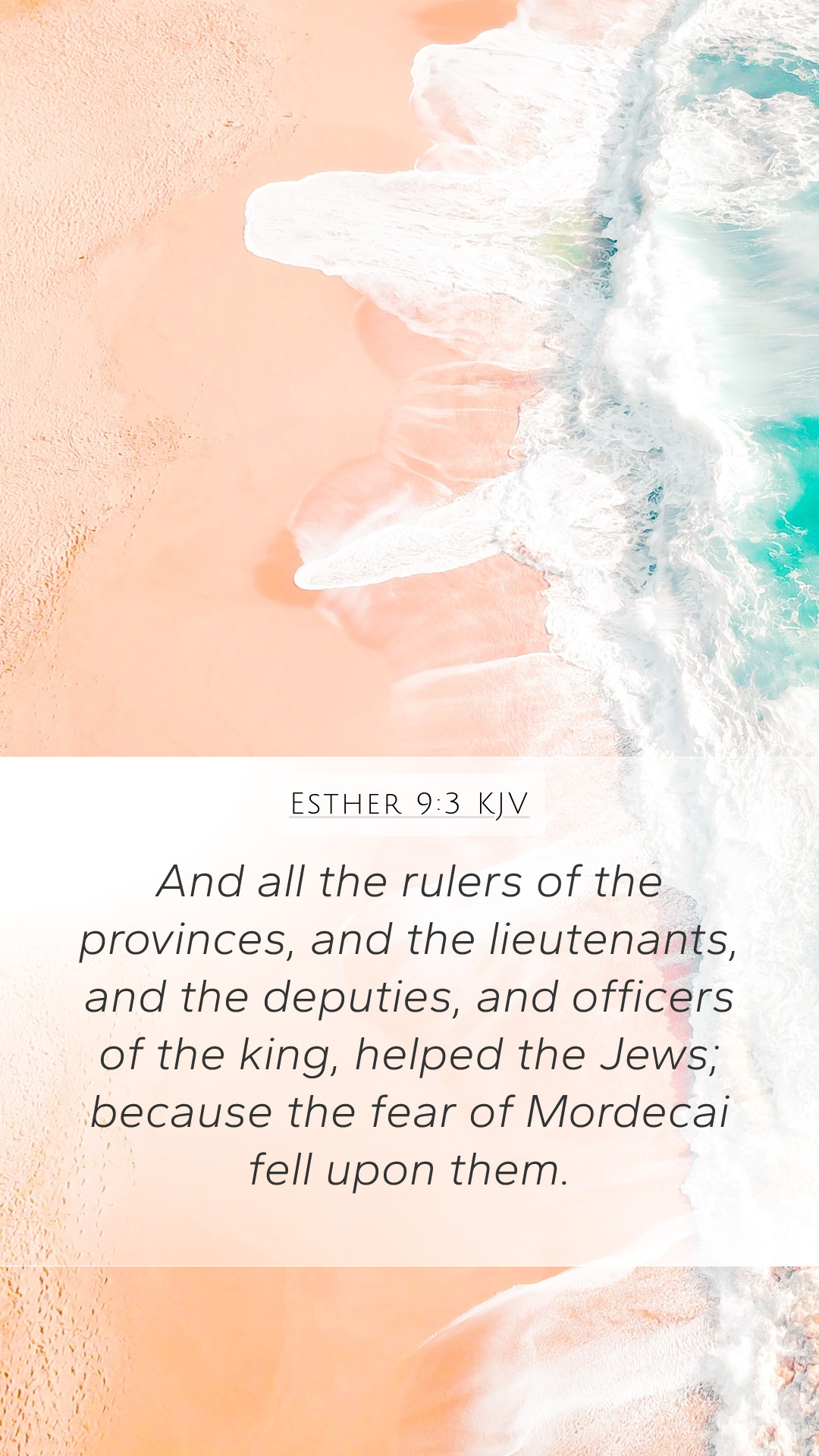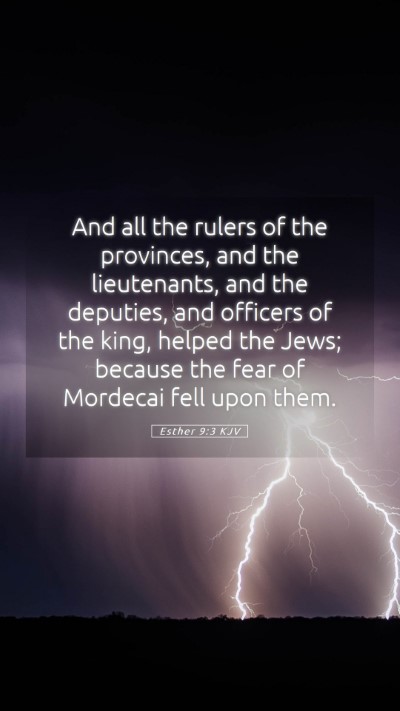Understanding Esther 9:3 - Bible Verse Meaning and Interpretation
The verse Esther 9:3 states: "And all the rulers of the provinces, and the lieutenants, and the deputies, and the officers of the king, helped the Jews; because the fear of Mordecai fell upon them."
This verse reflects the significant changes in circumstances faced by the Jewish people after the establishment of a new decree. The context of this verse allows for a deeper look into its implications through a combined analysis from notable public domain commentaries such as those by Matthew Henry, Albert Barnes, and Adam Clarke.
Contextual Analysis
Esther 9:3 is situated in a pivotal moment in the Book of Esther, following the edict that permits the Jews to defend themselves against their enemies. This pivotal event demonstrates God’s providence and protection over His people in a time of despair.
Key Insights from Commentaries
-
Matthew Henry's Commentary
Henry explains that the rulers' support for the Jewish people stemmed from their recognition of Mordecai’s authority and the respect that came with it. The fear of Mordecai can be interpreted as both a healthy respect and an acknowledgment of divine favor resting upon him and the Jewish community.
-
Albert Barnes' Commentary
Barnes highlights how Mordecai's rise to prominence after Haman's downfall shifted the political landscape. This verse illustrates the unity of various officials in supporting the Jews, indicating that the Jews were no longer seen as a marginalized group, but rather as a community of strength and significance.
-
Adam Clarke's Commentary
Clarke adds that the fear mentioned is not merely fear in a negative sense but also reflects awe for the power God had granted the Jews through Mordecai. Consequently, it emphasizes the importance of leaders recognizing divine authority and the need for support in times of struggle.
Key Themes and Reflections
-
The Power of Divine Favor
The support that the Jewish people receive underscores the theme of divine favor. Through Mordecai’s leadership, God’s protection and blessings are evident.
-
The Role of Leadership and Authority
This verse spotlights how authoritative figures can influence positive outcomes for marginalized groups, demonstrating the critical role of leadership in society.
-
Community and Unity
The collaboration between rulers and the Jewish community highlights the importance of unity in the midst of persecution. It serves as a reminder of the strength found within a supportive community.
Applications for Today
The implications of Esther 9:3 extend to contemporary themes surrounding justice, support for the oppressed, and the need for unity among diverse groups. This verse encourages individuals and communities to advocate for justice and stand in solidarity with one another.
Related Bible Cross References
- Esther 4:14 - Highlights the need for strategic intervention during a crisis.
- Esther 8:17 - Discusses the transformation of public perception towards the Jews.
- Proverbs 29:2 - Relates to the principle of righteous leadership.
Conclusion
In summary, Esther 9:3 serves as a profound statement of God's providence, the power of righteous leadership, and the importance of community solidarity against oppression. By studying this verse and its context, we gain deeper Bible verse interpretations and valuable Bible study insights that encourage believers to engage with Scripture meaningfully. This rich Bible verse commentary provides clarity and understanding, allowing us to apply these lessons to our lives today.


